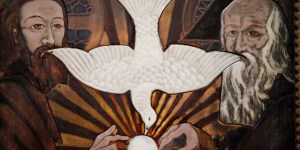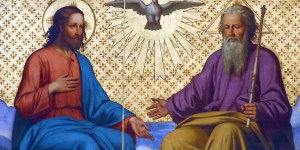The Holy Trinity is a mystery difficult to comprehend, and it is likely that we will never fully grasp it during our life on earth.
However, the Church has laid out a few essential points that all Catholics are required to believe. We may not fully understand these dogmatic points, but that is where faith comes into play, trusting that the Holy Spirit is guiding the Church.
1The Trinity is One
The Trinity is One. We do not confess three Gods, but one God in three persons, the "consubstantial Trinity." The divine persons do not share the one divinity among themselves but each of them is God whole and entire: "The Father is that which the Son is, the Son that which the Father is, the Father and the Son that which the Holy Spirit is, i.e. by nature one God." In the words of the Fourth Lateran Council (1215), "Each of the persons is that supreme reality, viz., the divine substance, essence or nature."
2 The divine persons are really distinct from one another
The divine persons are really distinct from one another. "God is one but not solitary." "Father," "Son," "Holy Spirit" are not simply names designating modalities of the divine being, for they are really distinct from one another: "He is not the Father who is the Son, nor is the Son he who is the Father, nor is the Holy Spirit he who is the Father or the Son." They are distinct from one another in their relations of origin: "It is the Father who generates, the Son who is begotten, and the Holy Spirit who proceeds." The divine Unity is Triune.
3The divine persons are relative to one another
The divine persons are relative to one another. Because it does not divide the divine unity, the real distinction of the persons from one another resides solely in the relationships which relate them to one another: "In the relational names of the persons the Father is related to the Son, the Son to the Father, and the Holy Spirit to both. While they are called three persons in view of their relations, we believe in one nature or substance." Indeed "everything (in them) is one where there is no opposition of relationship." "Because of that unity the Father is wholly in the Son and wholly in the Holy Spirit; the Son is wholly in the Father and wholly in the Holy Spirit; the Holy Spirit is wholly in the Father and wholly in the Son."
The Trinity is a part of God's divine revelation and is a truth we all are required to believe. We may not fully understand it, but we can call upon the Holy Spirit for help in strengthening our faith.



